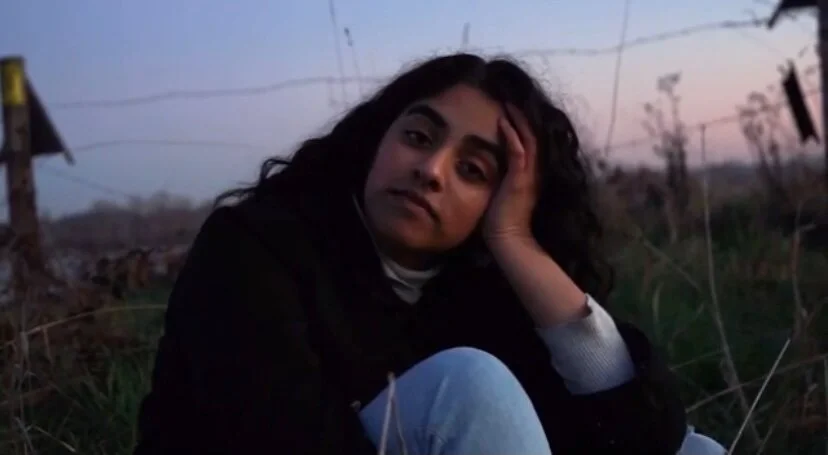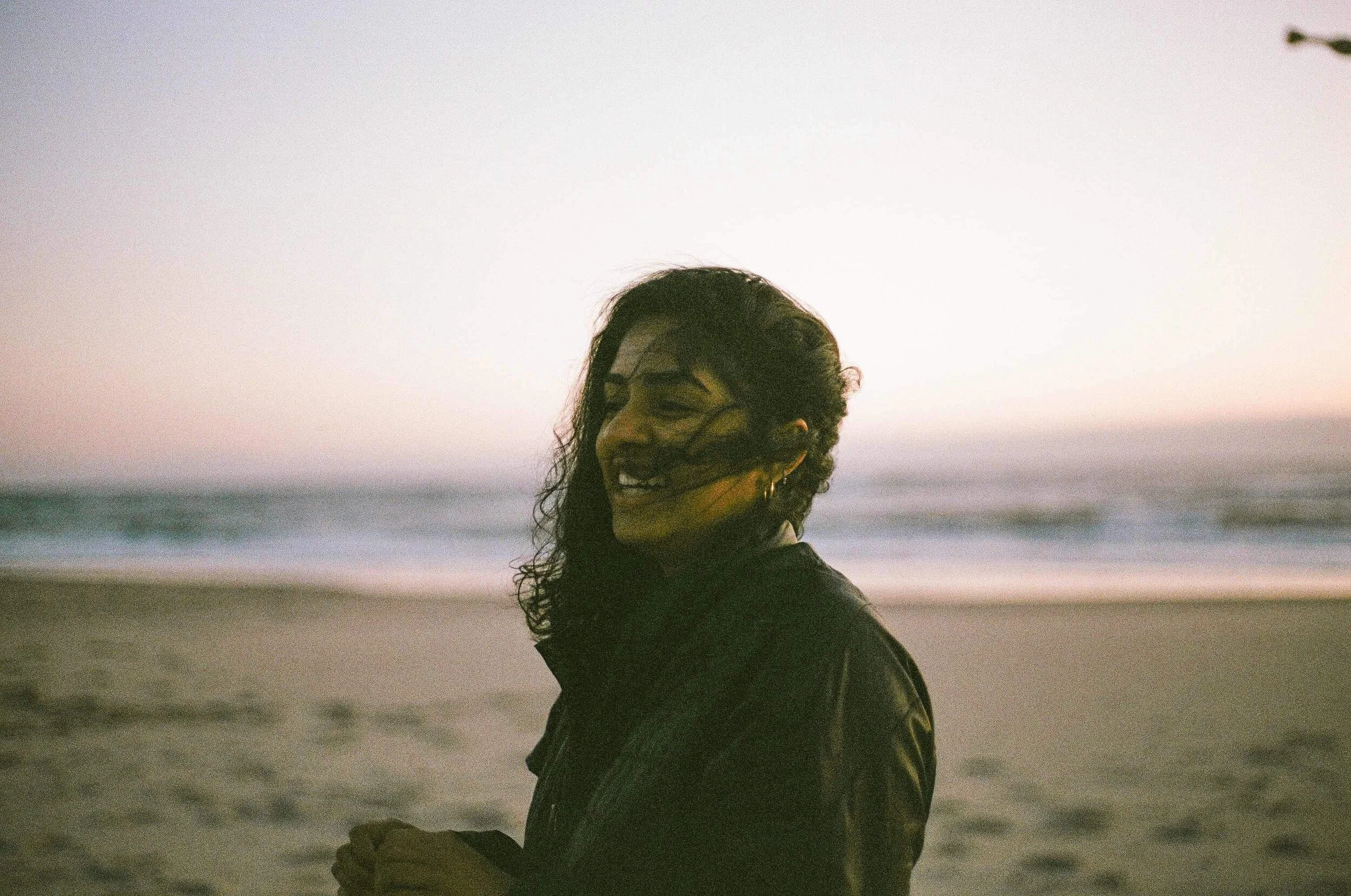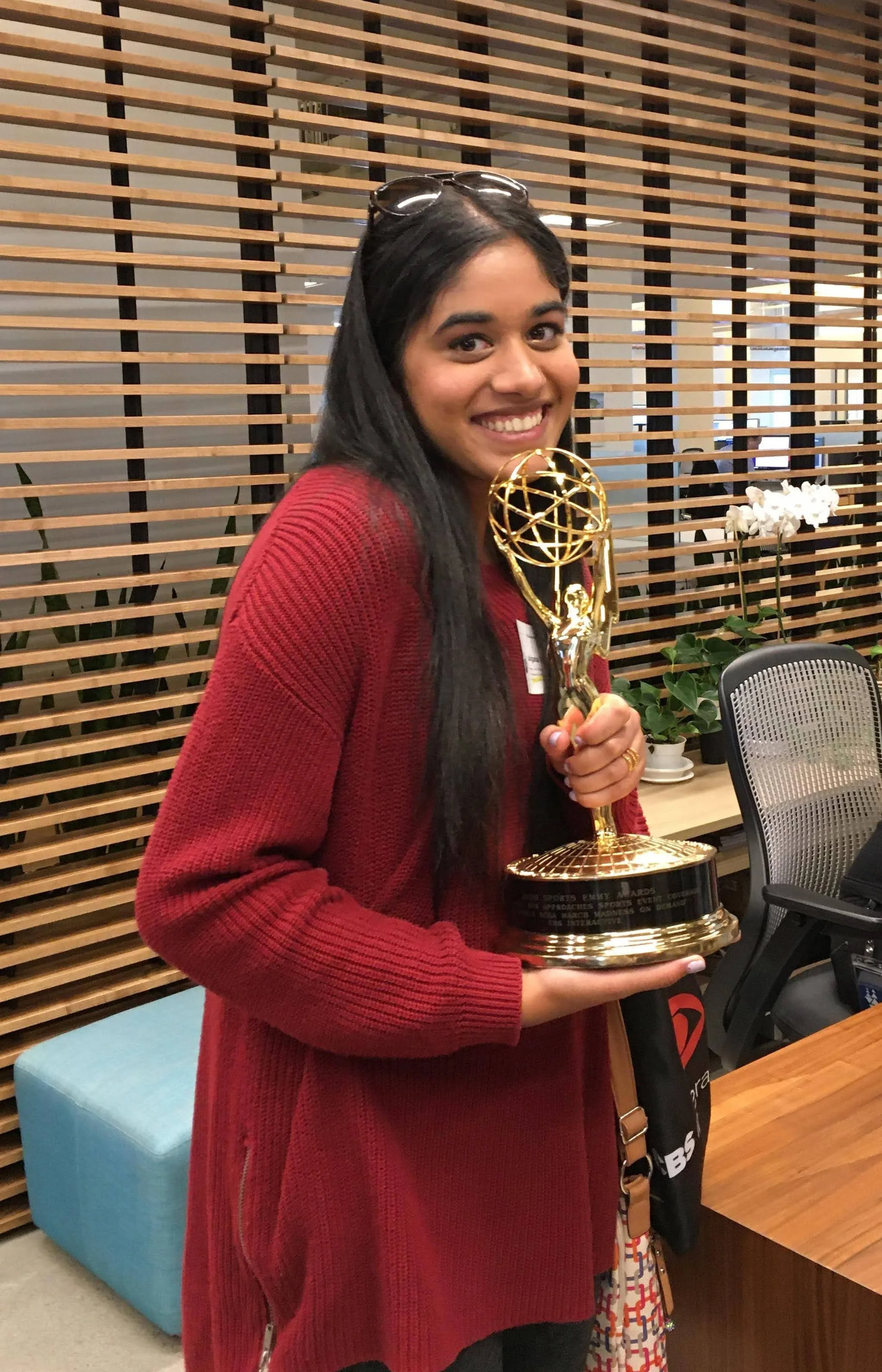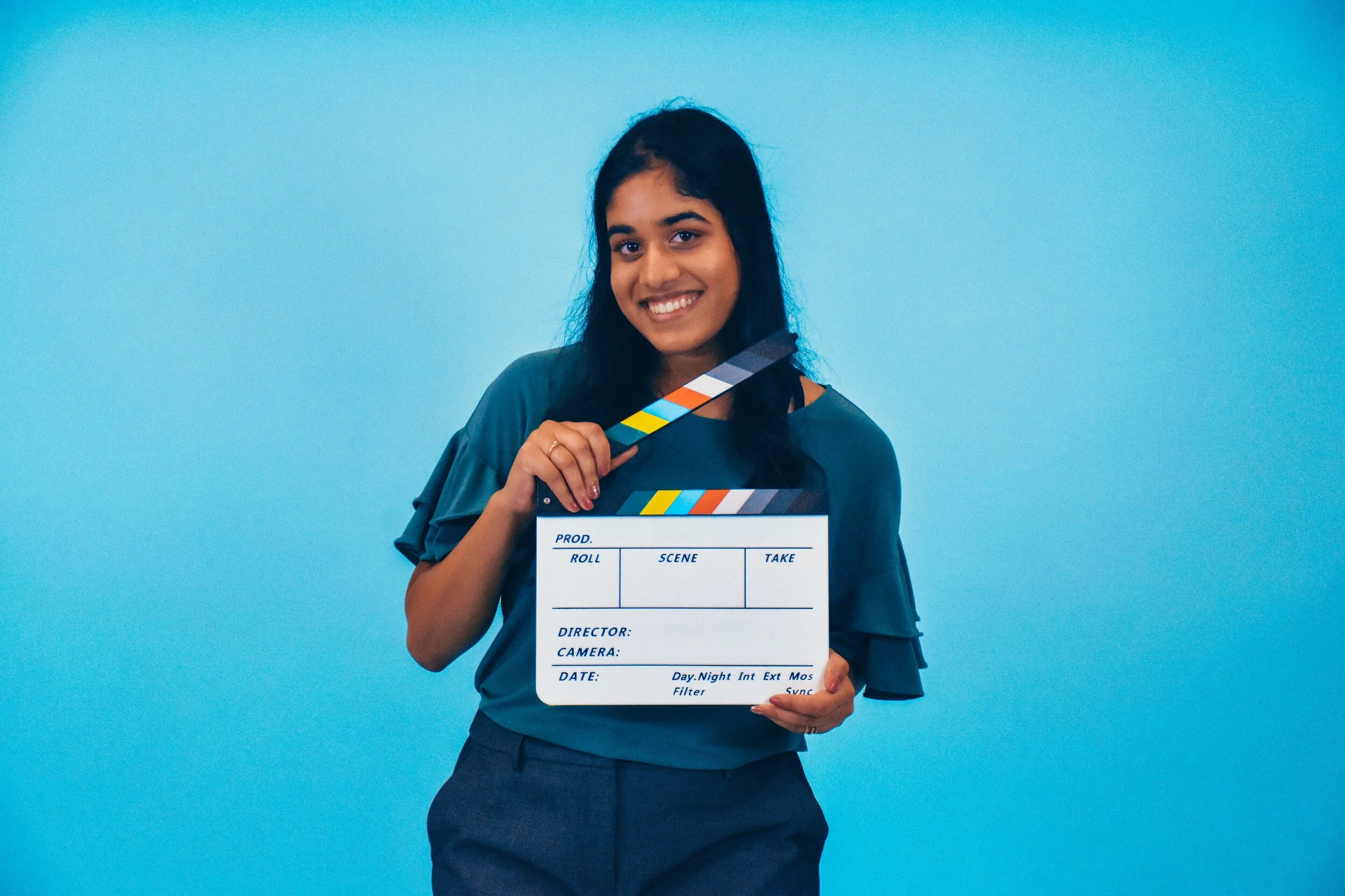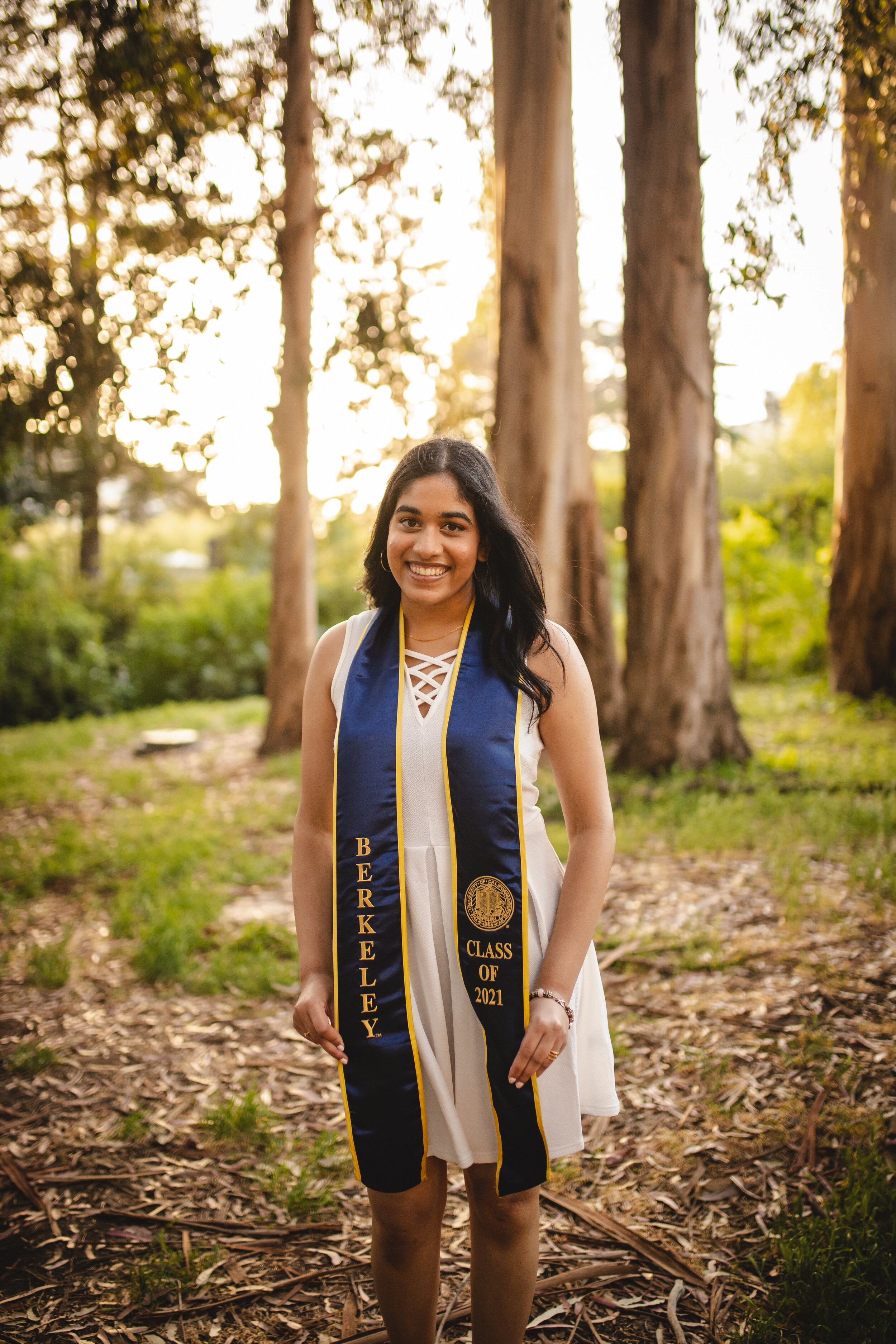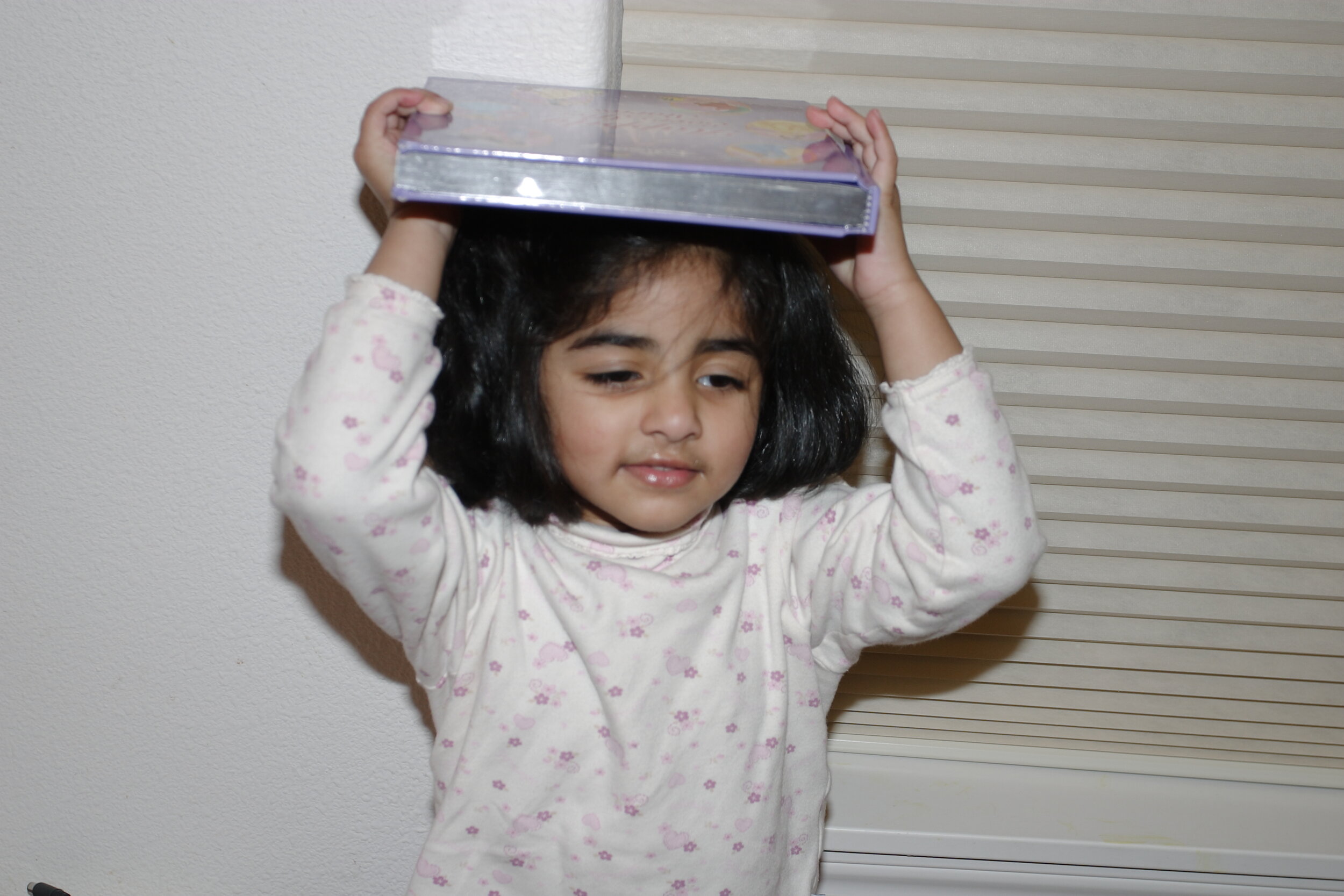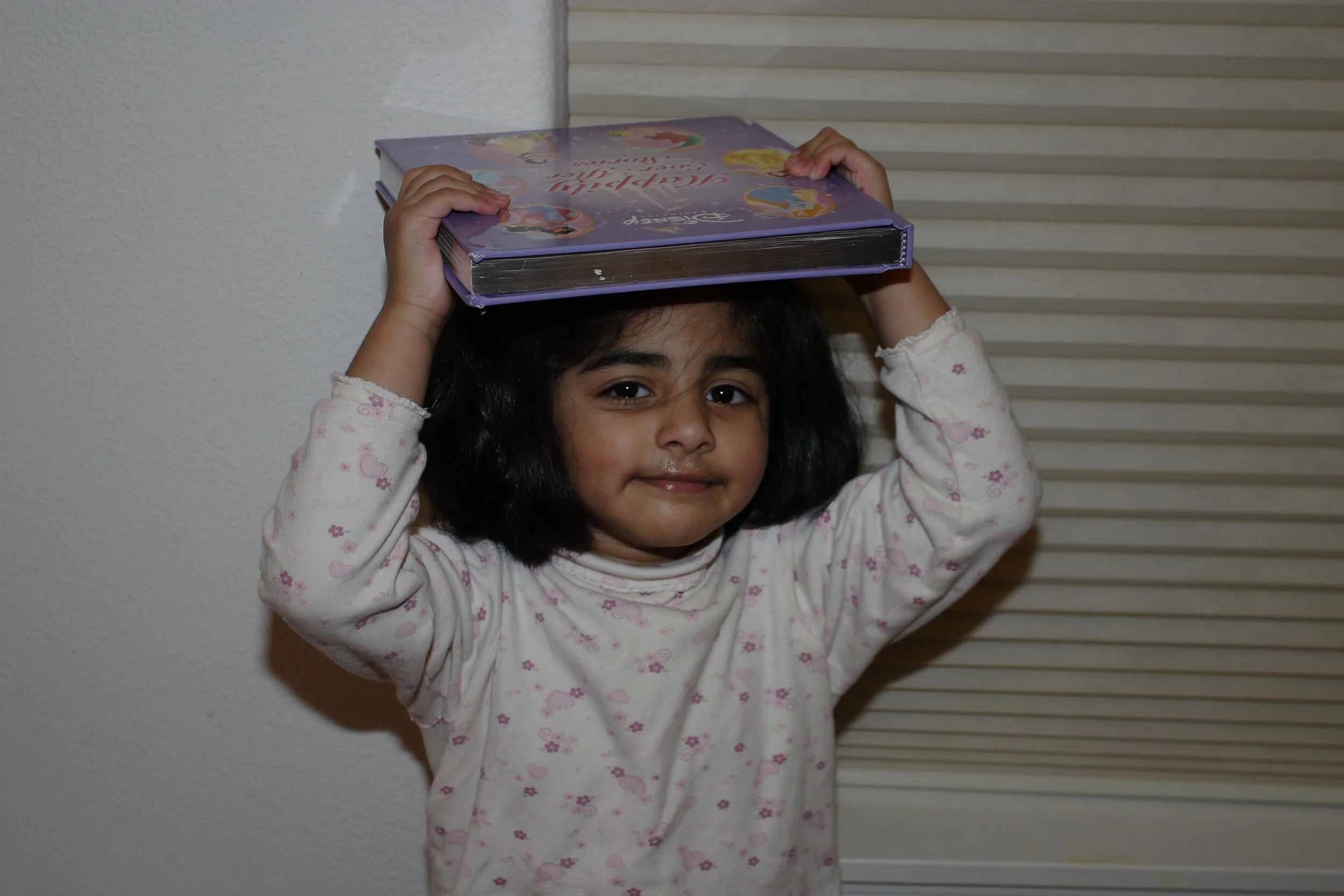A Chat Between Two Writers: Mallika Chennupaty and Anjana Iyer on Breaking Into the Entertainment Industry as Women of Color
Besides contributing to Pulse Spikes, writer Mallika Chennupaty is releasing a book! A rising senior at UC Berkeley studying creative writing and computer science, Mallika is interested in the entertainment industry but didn’t know where she might fit in it. As a woman of color, she knows there are unique barriers to entry into the industry and wants to explore how other people of color and those who may not have any prior industry connections are breaking into the industry.
This led her to write Greenlight: Making it in Entertainment, a collection of interviews between Mallika and industry newcomers about surpassing roadblocks in their experiences entering the entertainment world. You can support the book through its preorder Indiegogo campaign.
Mallika sat down with her good friend Anjana Iyer, a recent psychology and data science graduate of UC Berkeley, to talk about their love for the industry and the book.
‘Greenlight’ by Mallika Chennupaty
Mallika: So, Anjana, do you want to give a little intro about yourself?
Anjana: Sure. My name is Anjana. I just graduated from UC Berkeley... I started studying psychology and data science and I got very much into learning about the entertainment industry and creative careers, during my time [at UC Berkeley], and I kind of just started exploring the field a little more, and now I work in entertainment marketing. I'm a writer/director on the side.
Mallika: What got you interested in entertainment?
Anjana: I used to listen to film scores a lot... and that turned into a curiosity about what goes on behind the scenes. And then I joined the business careers entertainment club just to learn about it a little bit more, as well as GiANT Filmmakers my freshman year. And then I just started working on set, I did a summer filmmaking program, and then it just kind of snowballed from there. I just found it to be such an engaging medium. And I genuinely enjoyed it so much I couldn't really picture myself doing much else.
Mallika: I can't believe—wait well, I can believe you were pre-med because I feel like everyone was at one point. And then, we realized what we actually liked and went from there.
Anjana: I guess our questions are kind of in parallel. What drew you to entertainment and what function of the industry do you want to work in?
Mallika: I laugh because I still don't know what drew me to entertainment. I guess I started out as really liking writing, so it's really weird but senior year when everyone hated writing college essays, I really enjoyed it, like it was telling a story. But I never really thought it was something that I could do. I was like, Oh, I’ll just write something on the side, but I have to be pre-med or CS or whatever it was (which I'm still doing). But I came into college as a bioengineering major and was like half pre-med in my head. I realized I did not want to do that at all. So, I took a CS class and I was like oh this is fine and while taking the class I also chose this writing class and my teacher brought up the Creative Writing minor, and I thought that sounded really interesting... I really liked the classes that were there. That's kind of how I got into writing and movies, and entertainment stuff ha[s] always been something that I enjoy consuming on the side. It's the way that me and my family bonded and spent time together. And at some point during my freshman and sophomore year, I journaled a lot, which is corny I know,
Anjana: It’s not corny!
Mallika: Yes, yes, it is just a bit, I know, don’t worry. But I did it a lot because I was really scared about not knowing what I wanted because I really didn't have a set plan. I found that I really, really liked media, entertainment in general. I like interviewing, asking people questions, all that kind of stuff. And so that's how I got into it. Right now I think I want to be in screenwriting. I did talk to a script reader, and that's just like reading the script and summarizing it and that's how you usually get into screenwriting. But that's what I want to be right now. I thought about acting but that's because I used to do classical Indian dance, and there's a lot of acting in that. But I don’t really know about that now. But yeah, so that's how I ended up here and actually heard about the book program from a professor, and that’s how I’m here.
Anjana: Gotcha.
Mallika Chennupaty, photos by Ridwana Rahman
Mallika: I also did want to ask you about your interest in writing and directing, since you said you do that on the side. So, what’s going on there?
Anjana: Well it started during the filmmaking program that I did. It was just like, eight weeks but we wrote five short films and edited, directed, and did all of that and then we were like crewing on all our classmates movies, so I have that set, and then school got so busy that I just kind of took a break from it for like a year and a half or something. And then during the pandemic, I was connecting with Lena [a classmate from UC Berkeley]. She writes a lot, like she's been doing it for a long time, and she's like one of those generational super good people. So I was talking to her a lot, and I started writing again, so we co-wrote a feature. I started working on my own pilot and now I'm trying to develop a few others, but that's just kind of how it started, and I wish I could be directing a little bit more now, [but with the] pandemic it's not a good idea. But yeah, I just really like hashing out scripts like that and connecting with the crew to make it. It's a very cool bonding process too.
Mallika: Have you considered MFA in anything, maybe in the future?
Anjana: I considered it. There's also a couple of joint MBA / MFA programs that I was looking into, but the thing most MBAs do is that you need to have a few years of work experience before you start, unless it's a different program. So I'm maybe going to try, apply again in a couple of years but yeah, those are like they're really cool to make connections but they're super expensive, and I don't know if you read this article is going around lately by The Wall Street Journal about how all these like Columbia MFA grads are like they have like hundreds of thousands in debt by the time they start, and you don't get paid very much in entertainment when you start off either.
Mallika: Yeah, it’s crazy. I guess I also really wanted to ask about where the interest in film or movies started!
Anjana: It was kind of random. I was just watching a Pirates of the Caribbean movie one day, and the score on that was like epically amazing because it's Hans Zimmer, and I just started listening to it more and more and more. I found a ton on Spotify and I just kept expanding it, and it was just like a very, I don't know unique song format. There are no lyrics but it's all just the emotion of the music and that was very appealing to me. So yeah, that's how it started… I got to see Hans Zimmer Live in concert my freshman year at Berkeley. He came to The Greek Theater and I got to see it. It was crazy. I was literally crying, I was like this is too much for me to hit.
Mallika: One thing I miss is concerts.
Anjana: I know. Anyway, let me ask you a couple. What is the most important thing to you in storytelling?
Mallika: I think it changes depending on the setting of what I'm writing for. So the most important thing for the book is that I don't mess up other people's stories, like I don't misconstru[e] the words or anything. But for me when I write, I just want to be very, very honest because I think there's a lot of things that when I write a lot, there's just a lot of junk and stuff that I just write to avoid writing about what I really want to, because that stuff is scary and honest, and I hate being sappy. But I feel like when I write, that's the best stuff, when you're the most honest and the most vulnerable. And yes, I try to write things I'm scared about where I can piece apart some feeling or like this memory that I have.
Anjana: That's cool.
Mallika: What about directing for you?
Anjana: Well, I feel like diversity and representation probably. I know that's such a common answer nowadays; a lot of people talk about it but a lot of people are not really doing anything about it. So like South Asian American women specifically are the target for me because they have such cool backgrounds and no one really knows about them. And like Mindy Kaling is doing a fantastic job, but that's only one side of it you know.
Mallika: Looking back on your experience just throughout high school, even college, to finding opportunities, all this kind of stuff that you've done, which is a lot by the way, what kind of advice would you give to anyone who's interested in entertainment but doesn't really know where to start?
Anjana: The biggest thing I probably say is, well, at least for me, I was a super shy person in high school. Debate helped a bit, but it wasn't until college that I started branching out a little bit more. I am so introverted, but the biggest thing that I started doing was [asking myself] if I don't do or say this now will I regret it later, and I’m basically just giving myself like three seconds of absolutely insane courage to say it. And I think that was the biggest thing for me personally, like going out and talking to a member of GiANT or BCEC [Berkeley’s Business Careers in Entertainment Club] that I wanted to join, I would have never done it otherwise. So genuinely going out and joining these clubs… [learning] there's no one path and entertainment, which is freaking annoying. Like, no one has a straight answer to anything. And so the biggest thing that helped was I'd go on LinkedIn and literally just find people whose jobs I thought sounded cool and reach out and be like “Hey, I'm a Berkeley student. I'd love to have a coffee chat with you if you're free.” The pandemic helped because all you have to do is hop on a Zoom call and talk to them, and so I was doing like an insane amount of those and that helped a lot because now I know people who work at these companies and they're willing to help out, especially Berkeley alums. They're always willing to help out. Join a lot of clubs and meet a lot of people and network your butt off.
Anjana Iyer
Mallika: I feel like that's so important for this industry, especially because, I don't know about you but I don't really know anyone in the industry right, but like people in BCEC.
Anjana: So, how about you, what would you say is your biggest tip because you connect with a lot of people to write the book?
Mallika: Emailing publicists was literally my favorite. My email, which is where I lived for six months, was really helpful. Also, just something that I learned about writing the book is that I think a lot about everything. I'm like, Oh, should I do this, should I not do this or is this the right choice, is it the wrong choice. But everyone I interviewed was just like you don't know what you like until you actually do something, so just do it and see how you feel. I still cannot believe that I'm doing something like this just because I never even thought I would. And when my professor first told me about it I was like, Oh, I don't think I'm good, I don't know. All this imposter syndrome… [me] even thinking, Oh what will people think, I'm a CS major but I'm writing about entertainment.
Anjana: That makes it 10 times cooler in my opinion.
Mallika: Thank you, but yeah I mean, I guess it just doesn't fit all together in my head. I thought that everything that I did had to be this perfectly curated image that makes sense to everyone, but then I realized, well not even realizing, but kind of like getting over myself. Just do it, see if you like it, and then see what happens.
Anjana: That's awesome. I feel that way. You don't really know if you want to do it until you actually pick it up and start doing it. Like, we can say to like friends and family all we want, and they're like, Are you crazy, what do you want to work there for and then you actually do it and they're like...
Mallika: Yeah, literally, when I first told my parents about it, it’s not that they weren’t supportive, but they kinda just shrugged their shoulders.
Anjana: Yeah, it's considered a waste of time almost...
Mallika: Yup, cause it’s like you have this degree [in this other field] but you want to spend all your time doing this other thing. And then when I actually told everyone else, and they saw me working, they were like oh, this is actually something you're doing. Cool. It's just weird to see how everything kind of comes around.
Anjana: But have you thought about what you want to do straight after graduating, because I still firmly believe you can have like a main job and then still be doing like all this creative stuff, like, pursuing it at the same time. I don't know, have you thought about like what kind of balance you're aiming for?
Mallika: I think I am. I really want to see what happens next year. The book has opened a lot of opportunities for me just because I talk to people. But I do think that straight out of college I don't really feel like I have enough experience, or really the balls, to just quit everything and write. I think I will be doing both, but I'm excited because I’ll have so much more free time [after graduating]. Now it feels like I'm doing this, doing school and working and it's just there’s no brain space to even think about anything else. And you probably felt the same way.
Mallika Chennupaty as a child
Anjana: Literally, I’ll wake up on a Saturday morning, and I'll be like I have no homework to do. It's still a new feeling for me. It's weird. I started embroidering because I have nothing to do.
Mallika: That's crazy. What about balance now that you are not in college, you're working full time.
Anjana: Someone recently told me this interesting thing about work/life balance: it never really exists in general. It's more about which one you're prioritizing at any given time. Yeah, sometimes it'll be like, Oh, I have a family commitment so I'm going to shut off work and go do that, and other times it will be like, Hey, I can't go hang out with my friends today because there's a bunch of stuff I'm gonna take care of at work. It's been a busy few weeks and I have to do it so it's like, it's always kind of shifting, which I thought was a really cool way [of describing it].
Mallika: Before we go, I want to ask about the future. Any plans on the way, milestones… if you don't have any that's totally okay too because, you know, live in the moment or whatever!
Anjana: I've been thinking about this a lot. I'm currently trying to get a master's in data science or business analytics so there's more opportunities to do tech and storytelling within other industries in places like YouTube and Apple. All these places are doing a lot of really cool, pretty underrated stuff that I want to tap into, and then I'll be getting my MBA in a few years. So that'll be fun. But yeah, in the meantime I'm kind of just trying to explore more, doing the best I can in my current job, following this track and also making more time to like to write, for example, all the time because that's what I'm trying to practice right now. It's really hard [because] you work like 10 hours a day and then you're like, Oh my god, I have to sit and write, and writing half the time for me is like pulling teeth… Yeah, so figuring out that balance a little bit better is what I'm aiming for. But also, I'm just trying to branch out as much as possible… do you have anything else that you're thinking of doing in the future, or for senior year? Let's start with senior year!
Mallika: I’m gonna give less shits about school work because the grades don’t matter. So I think my goal for this year is just to get this book done and out there and see how it goes. It's been on my mind a lot, but it's one of the most fulfilling things that I think I've done. Not even because it's for me, but I also genuinely believe that it will help other people to see there's no one set guide or rule for anything. I think the more you read about other people and what they've done, and how they got to where they are the more info [you] have.
Thank you so much for sitting down with me!
Anjana: Hey, thanks for asking me, this was super fun! Have a really good senior year. Properly enjoy it.
STORY ANA SANDOVAL
INTERVIEW MALLIKA CHENNUPATY & ANJANA IYER
PHOTOS courtesy of MALLIKA CHENNUPATY

